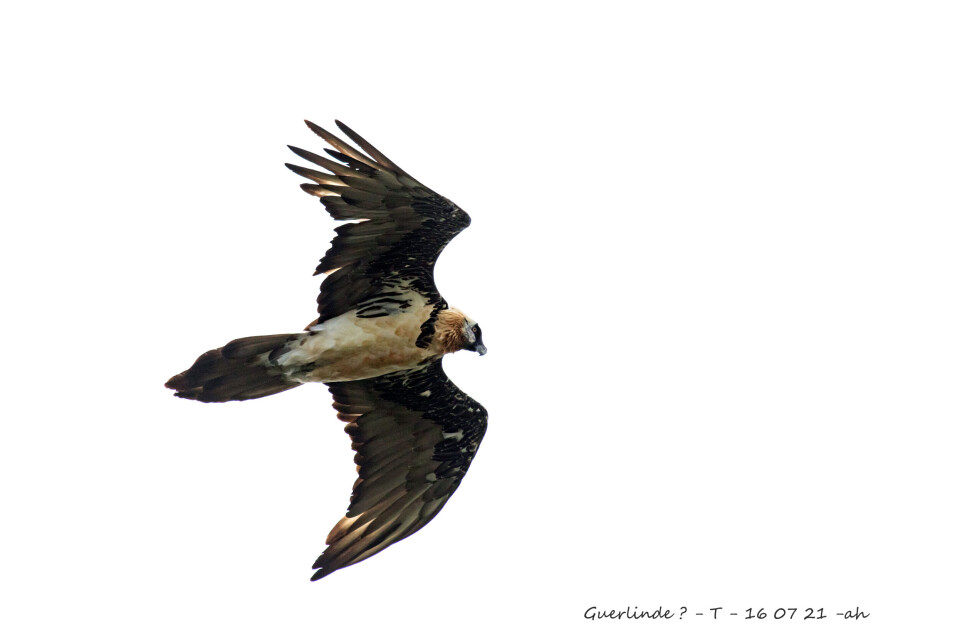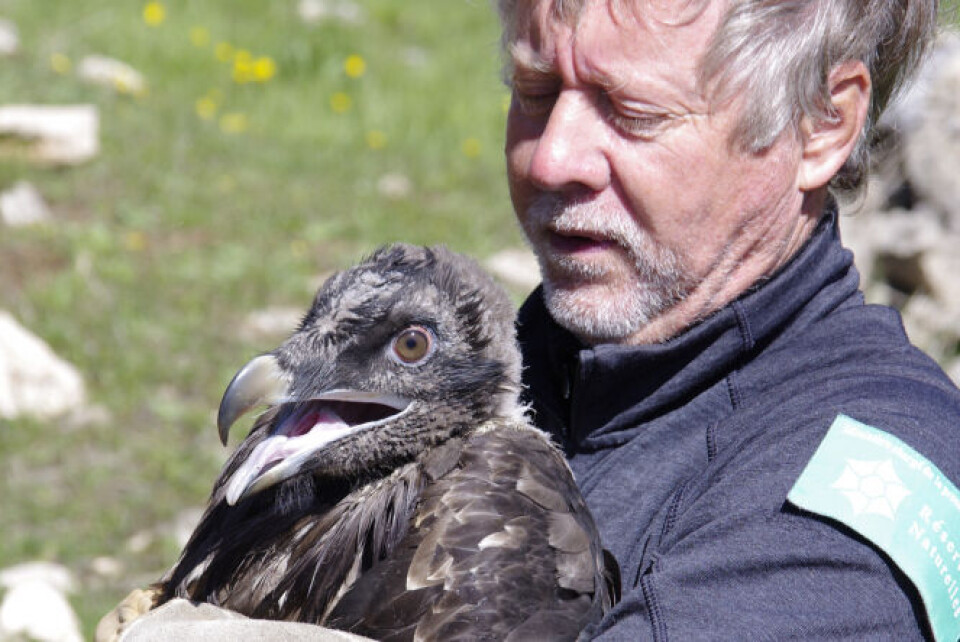-
Is it time to stop changing the clocks in Europe?
Campaigners say it would help improve health and also reduce traffic accidents
-
Gisèle Pelicot memoir hits sales top spot in France
The book, which has been translated into 22 languages, left Queen Camilla ‘speechless’
-
New tax on deliveries from outside EU: How will it affect customers?
The new charge will apply to all deliveries valued under €150
Endangered vultures have laid eggs for the first time in French Alps
Bearded vultures were reintroduced to the area in 2013 after they all but died out in the early 1900s. Then, it was popular for hunting parties to shoot up to 40 of them in a day

Bearded vultures introduced into the Vercors mountain range of the French southern Alps in 2013 have laid eggs for the first time, and rangers are waiting to find out if chicks have hatched.
The bearded vultures are the most threatened of the four kinds of vultures in France.
They are the last of the vultures to arrive at a carcass and feed mainly on bones, sometimes taking larger bones into the sky and then dropping them on to rocks to get at the marrow.
Extensive hunting and poisoning saw the last wild Vercors vultures die out in the early 1900s after it became popular for hunting parties to shoot up to 40 of them in a day.
The reintroduced vultures were all from sanctuaries for wounded birds or specialist zoos.
Chicks are released at around four months old, the time they would normally leave the nest to explore the Alps mountain range. Around six years later, they return to the release site to establish their own territory.
Bruno Cuerva, warden at the Réserve Naturelle des Hauts Plateaux du Vercors, which is responsible for the reintroduction programme, said: “It is very pleasing that we now have a couple which have laid eggs.

Bruno Cuerva with a young bearded vulture before release. Mr Cuerva is warden at the Vercors reserve responsible for the reintroduction programme. Pic: Nadia Roblet / supplied by interviewee
Read more:Spring nature spotting in France: clues animals and birds leave behind
“Bearded vultures mate for life once they raise successful chicks, but it takes eight to 10 years for them to reach sexual maturity.
“Then they lay just two eggs but only feed and look after one chick, the first born, leaving the other to starve to death.
“For that reason, it will take some time still to be sure we have an established breeding population.”
Of the 16 birds released in the Vercors in 2013, at least three have died – two after being electrocuted on high-voltage lines.
Another was found caught up in an avalanche in Austria.
It is not possible to follow the others as small solar-powered GPS trackers stop working after around five years, and the feathers on the birds’ legs hide the identity rings.
Bearded vultures are also one of the birds with the longest incubation period of eggs, at 55 days.
“We are fairly sure that the eggs were laid on the third or fourth of February, so it will be the very end of March or the start of April when we will know for sure if the chick is alive,” said Mr Cuerva.
“It is an anxious wait.”
A population of around 250 bearded vultures survives in the Pyrenees mountains and is slowly growing, but they do not venture into the Alps.
The Alps vultures have previously been tracked in the same mountain range in Germany, Switzerland and Italy, all of which reintroduced bearded vultures at about the same time as France. The Italian and Swiss programmes resulted in successful breeding seasons last year.
Related stories:
Confiscated or rescued wild animals find new home at unique French zoo
Birdwatcher’s guide to France: Nature reserves, parks and trails
Sea eagles to be released over Lake Geneva after 130-year absence
























